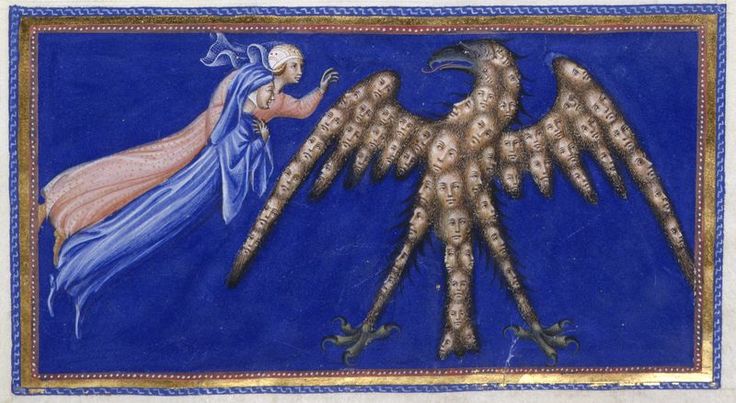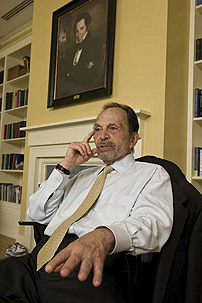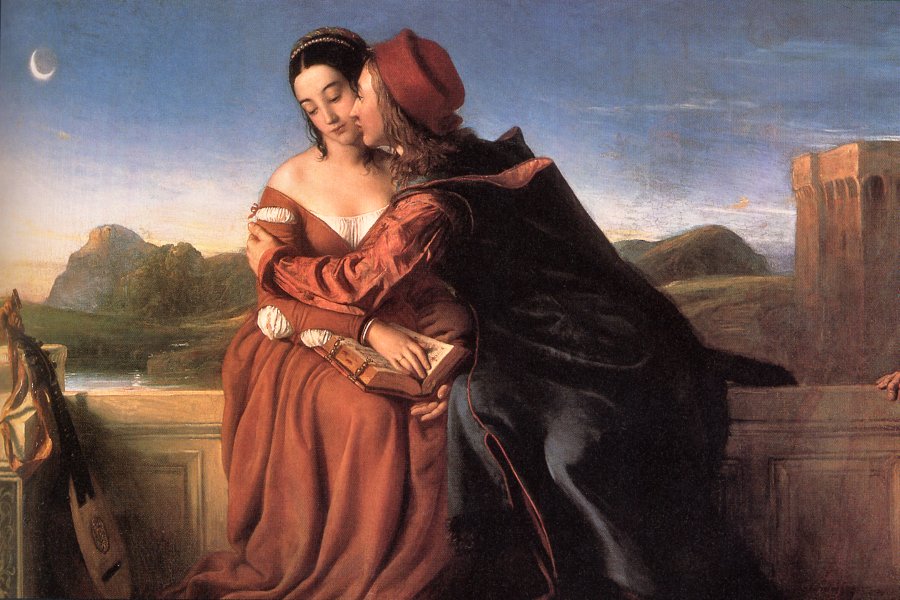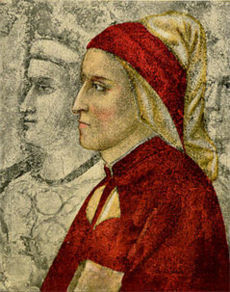Early sci-fi: how Dante warps time and space
Saturday, March 2nd, 2019Was Dante a precursor to modern notions in sci-fi? Perhaps so. I was recently reading Disorder and Order, the book that came out of Stanford’s remarkable 1981 conference of that name organized by René Girard and Jean-Pierre Dupuy. I had seen the volume before, but somehow overlooked the brilliant essay, with the unalluring title, “Cosmology and Rhetoric,” written by one of the world’s leading Dante scholars, Stanford’s own John Freccero. In it, he makes the case for the written language as a spatial representation of time. He begins the discussion this way:
“…I would like to cite the representation of the solar disc and zodiac in the pavement of the baptistry in Florence. Surrounding the Romanesque wheel of the heavens is a nearly effaced inscription – En giro torte sol ciclos et rotor igne – which may be roughly translated, “Behold the sun in its cyclical gyres and the wheel of fire!” Its significance is not in what it says but rather how it says it. The phrase, in fact, is a palindrome which reads the same from left to right and from right to left. In a tradition that goes back at least to Plato‘s Timaeus, the two apparent motions of the sun diurnally moving from east to west and zodiacally from west to east were described as a motion to the right and to the left. …
“Dante’s literary cosmology is infinitely more complex, although elements like this can be discerned here and there in his voyage through the heavenly spheres. The complexity arises from the fact that the tautological structure of his poem warps the categories of time and space so that his voyage ends where it begins and time is recaptured. The arrow of temporality is also reversed in the final part of Proust‘s work where Le Temps retrouvé marks the end and therefore, paradoxically, the beginning. But the space was Paris, or at least the corklined study. In Dante’s work, however, space is a figure for this temporality so that it too bends back upon itself, boundless and all-encompassing, yet encompassed by the time that it takes to traverse it. The space-time continuum was familiar to Dante through the metaphor of written language which is a spatial representation of time. We are made surprisingly aware of this each time we run across phrases such as ‘as we saw above’ or ‘as we shall see below.’ The surprise comes from our temporal representation of space which is, in fact, the act of reading, in which we lend to space our own temporality as does a machine to the film frame placed before it. In the case of a book, however, the claim to totality is implicitly made – bound up and bounded by its covers, encyclopedic in the etymological sense of the word. When such a claim is translated into temporal terms, then all of time must be contained within it. When Dante refers to the primum mobile with one of his most bizarre images, referring to the outermost heavenly sphere as the flowerp0t in which time has it roots, he is making a claim not only for his voyage but also for the poem, which is coextensive with it. Since his story is in part how this story is written, it is inevitable that the closing of the book be its ending in which all of time and space are contained.”









